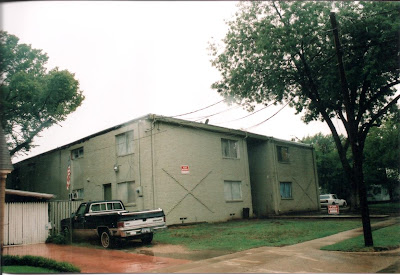Santa finds kids giving shorter lists in recession
By MARTHA WAGGONER
AP – Tue, Dec 6,
RALEIGH, N.C. (AP) — A job for their mom or dad. Money for the heating bill. Food or a place to live. Maybe gloves or boots.
More and more, Santas say the children on their laps are asking for less for themselves — and Santa is promising less as well.
With unemployment stubbornly high, more homes in foreclosure and the economic outlook dim, many children who visit Santa are all too aware of the struggle to make ends meet.
"These children understand the conditions around the home when they ask for stuff," said Richard Holden, a 69-year-old Santa from Gastonia, N.C. "They understand when there are other children in the family, they need to be cautious or thoughtful of them as well and not ask for 10 to 12 items."
Cliff Snider, who's been playing Santa since he was a teenager, agrees.
"I think the parents are saying, 'It's an economic thing. Just list two to three things you really want to have,'" he said. "Parents are trying to encourage the children to be thrifty."
And the 64-year-old Snider does his best to help out. When he gets a big-ticket request, he typically responds: "There's an awful lot of children asking for that this year. What else do you want?"
At the Charles W. Howard Santa Claus School, Santas learn lines like, "Wow, that's a big gift. Is there anything else you might like?"
These days, though, Santas are having to use it less and less.
"I think it's becoming more popular not to have that long list," said Tom Valent, dean of the Howard Santa school in Midland, Mich., which gets more than 3,000 letters to Santa a year and just graduated its 75th class. "Families are teaching their children to be as much of a giver as a receiver."
Starlight Fonseca has been teaching her five children, ages 5 to 14, "that we're not the only ones who have to cut things back. We're not the only ones struggling."
The 31-year-old mother and her husband Jose had been relying on a stipend from the University of Texas law school that Fonseca lost when an illness made it impossible for her to keep her grades up. She'd hoped to graduate in May but was unable to attend school this semester and can't get student loans due to poor credit.
Fonseca tells her kids that "to make it fair for everyone, Santa has to cut back for everyone. ... We paint it in a way that Santa is doing the best he can to make everybody happy at Christmas."
It's especially hard for the oldest children.
They were two little kids who used to be excited about Christmas, and now they know every gift under the tree should have gone to the utility company," she said. "It shouldn't be that way, but that's where we are now."
Of course, Santas still see some kids like the 9-year-old who pulled out a BlackBerry and showed Snider photos of all the things he wanted. "It cracked me up," he said.
Holden's response to a long list is to say something like, "Why don't you narrow this down just a little bit and choose two or three items you would really like?" Sometimes he'll even mention prices, and say, "With things like they are, Santa Claus will do what he can to help you get what you like. But we can't make you any promises."
Tim Connaghan, who runs the International University for Santa Claus in Riverside, Calif., conducts an annual survey among the 500 Santas he employs. The economy has become such a big issue that Connaghan asked them for advice on how to handle some of the questions kids were asking about unemployed parents or having to move.
"Let's all hope your dad will find a new job, or you will get into a new home," is one recommended response.
"Acknowledge the problem, give them a positive response and say, 'Santa loves you, too. Maybe I could get something special for you,'" said Connaghan. "It's that quick, usually. But the hope is that when the child leaves, he feels a little better."
Connaghan recalled the night he and other Santas took some needy children shopping. One boy wanted to buy toilet paper because his mother was taking napkins and paper towels from a fast food restaurant for toilet paper.
"He wanted to buy her real toilet paper — a common, everyday item that we all take for granted," Connaghan said. "And this child is thinking this is a Christmas gift."
Holden has had children ask for things like heat at home. He'll tell the child Santa will do what he can, then try to let the parents know about agencies that might help.
One child returned a year later and "said she wanted to thank Santa for getting her some help when they didn't have food or a place to stay." Someone had overheard the conversation with Santa and helped the family.
"There's more to being a Santa Claus than you think there is," Holden said. "You don't just go 'ho, ho, ho,' pat them on the back of the head and send them on their way. You get involved with them. ... You just make sure they feel loved and they feel special when they leave your lap.

























